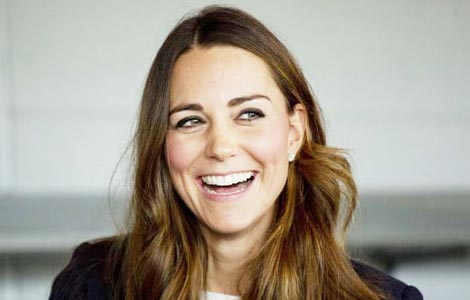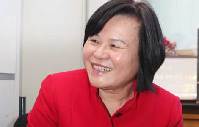Disability no barrier to can-do spirit
Updated: 2013-12-03 13:18
By Nick Compton (China Daily)
|
||||||||
Student life, on wheels
His room is meticulously organized and spotless. On his bookshelf, GRE study guides are neatly stacked next to C++ programming manuals and thick volumes of Chinese literature. Meng Haoran, a Tang Dynasty (AD 618-907) poet, is one of his favorites. By all accounts, Yi has thrived at Tsinghua. He gets As. He has joined the debate team as well as a literature study group. He has made friends who are honest and helpful. When he is late for class because he has to conquer a flight of stairs or two, his teachers wait. Living in the international student dormitory has given Yi an extra advantage: He has been exposed to foreign cultures, improved his English, and made international friends.
This is what Yi wants. Give him an opportunity, he says, and he will show you he can succeed. "Most people in Chinese society will show compassion to the disabled, thinking that they need to help us," Yi says. "But that's not what we need. We need the chance to create our own future, the chance to try our best."
| Heart of gold |
Upon graduation, Yi hopes to attend graduate school in computer science. He'd love to go to Stanford, but is happy to stay at Tsinghua. Eventually, he wants to start his own technology firm dealing either in computer software or, like one of his idols, Sogou's CEO Wang Xiaochuan, he wants to delve into a specialized search engines.
He recognizes the road ahead will be tough. When asked if he has ever doubted himself or his abilities, he doesn't flinch. "Yes," he says. "First, I didn't know whether I could have the chance to enter university. Now I'm not sure whether I can get a job in the future. I don't know whether those people (employers) will judge me by my disability."
Although Chinese law stipulates that all companies reserve 1.5 percent of their positions for people with disabilities, the rule is easy to circumvent, experts say. Some employers consider it too "risky" to hire people with disabilities and shut the door to them entirely.
Yi thinks the first step in correcting these misconceptions is to build more accessible public facilities, especially in second- and third-tier cities and, more importantly, address the educational needs of disabled children early in their life. He says that most elementary and middle schools aren't adapted to accommodate disabled students. If a special school exists, he adds, the stigma of attending it and being apart from peers your age can be ego shattering.
"My disease and disability have caused many difficulties for my family and myself," he says. "But I think I'm very optimistic. My misfortunes make me and my family stronger. What these misfortunes bring will surpass the misfortunes themselves."
Wu Yanni, Zhang Yu and Zhou Meixi contributed to this story.
For more China Face, here

 Post-baby Duchess
Post-baby Duchess
 Victoria Beckham S/S 2014 presented during NYFW
Victoria Beckham S/S 2014 presented during NYFW
 'Despicable' minions upset Depp's 'Lone Ranger' at box office
'Despicable' minions upset Depp's 'Lone Ranger' at box office
 'Taken 2' grabs movie box office crown
'Taken 2' grabs movie box office crown
 Rihanna's 'Diamonds' tops UK pop chart
Rihanna's 'Diamonds' tops UK pop chart
 Fans get look at vintage Rolling Stones
Fans get look at vintage Rolling Stones
 Celebrities attend Power of Women event
Celebrities attend Power of Women event
 Ang Lee breaks 'every rule' to make unlikely new Life of Pi film
Ang Lee breaks 'every rule' to make unlikely new Life of Pi film
Most Viewed
Editor's Picks

|

|

|

|

|

|
Today's Top News
US calls for release of American jailed in Cuba
US to share lessons with China on pollution reduction
Staggered flu shot plan best for China: study
Online shopping changing retail world
House hunting the world in Chinese
Chinese credit agency forecasts US downgrade
China-UK collaboration is about time: President Xi
Biden's Asia trip under pressure
US Weekly

|

|







